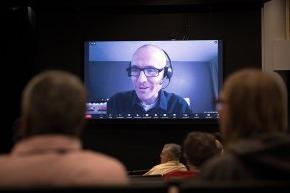
LTSS hosts Q&A at North Carolina Synod Gathering
With a positive focus on the future, the Rev. Dr. Chad Rimmer, rector and dean of Lutheran Theological Southern Seminary (LTSS), held a question-and-answer session with LTSS alumni attending the 2024 North Carolina Synod Gathering on Lenoir-Rhyne University’s campus on May 31 to address questions about the seminary’s upcoming move to the LR campus in 2024.

The following questions and answers taken from the session have been edited for space and clarity.
Q: Where will the seminary be located, and what will the space look like?
A: Together as a faculty, we have made a site visit to LR to look at potential sites, and we're in the final stages of choosing which house on campus will house the LTSS faculty and staff. We will have at least one of the houses as the physical presence of LTSS campus. For classes, we will make use of the existing classroom spaces on campus. As our faculty talks continue about a balance between the seminary as an institution with its external accountabilities, programmatic needs and cultural traditions, and our full as a graduate school of LR and all the vibrant aspects of campus life. But, yes, there will be a building, a place with a sign where LR students, colleagues and neighbors in the community can come, grab a cup of coffee and sit down with the staff and faculty and students there.
Q: Some of us are remembering our difficult feelings surrounding the 2012 merger. Can you talk about the savings coming from this move, where they’re coming from and how this scenario is different from the 2012 merger?
A: I think everyone knows about the emotional and practical difficulties of the merger. It's been wonderful in this process to work directly with the LR administration and board of trustees because we all acknowledge those difficulties, we’re learning from those stories and are using this as an opportunity to heal memories with those who experienced it. We do that by being transparent in sharing news and inclusive of concerned and affected parties in the process. That’s the reason for today’s session and for future informational sessions we have scheduled, keeping the dialogue open.
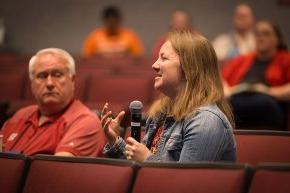
As for the financial question, it’s helpful to think of this as simply a physical relocation to address the acute ongoing budgetary issues – which was the difficulty of duplicating student services on two campuses. While LTSS accounts for about 4 percent of LR’s faculty and 2 percent of LR’s students, we carry nearly 40 percent of the deficit, largely due to campus operations. This is simply not sustainable, and the reality is, it hasn’t been for many years. Relocation solves that problem well into the future. But there is no change in the financial structure between LR and LTSS. In fact, since the merger there is no fiduciary entity called LTSS – the funds are all held by LR, are designated only for LTSS, and will continue unchanged after the relocation. All of the restricted funds for seminary programs – the endowments, the scholarships, all of the bequests and estate gifts – everything that has been in place to support the LTSS mission and programs since before the merger stays exactly the same.
Q: Will seminary students be able to take additional graduate classes at LR, such as marketing or business finance?
A: We have electives and concentrations already built into our curriculum – courses in sustainability, counseling, business and leadership, marketing, accounting and similar interdisciplinary opportunities that address the practical aspects of ministry. Being on campus, we’ll have more opportunities to engage with faculty in other disciplines, and for seminary faculty to develop interdisciplinary seminars in addition to individual classes. For example, I think it would be amazing to think about Spanish language and Latine-focused courses. So, I think part of what we have to gain by being in Hickory is to offer more interdisciplinary opportunities to benefit our students and translate into more diverse skills for public ministry.
Q: What will this move mean for the future recruitment of seminary students?
A: In the short term, I think it’s important for all of us – including everyone in the room – to speak about the quality of the education and the formation that we received at LTSS. It’s reflected in the students you know, in each graduating class, each incoming class. The more we can share those stories with parishioners and colleagues, we can mitigate short-term nervousness about the changes that are happening.
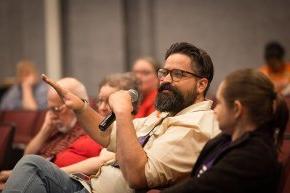
In the long term, I think we’ll be able to offer a lot of student services and experiences that will be wonderful – access to dining services, cultural and arts programming, athletics, the interdisciplinary access and life on a campus that’s always buzzing with activity. And I think the ecclesial community here in the immediate area will be a great gain for future students. These are all gains for student learning and the student experience, which will build a compelling story about residential learning and the quality of the theological education and formation that LTSS offers. By sharing that story, we – faculty, staff, alumni, church members – do our part to increase enrollment in the future.
Q: Since contextual learning is such an important part of formation, we’ve had some conversations about what that could mean for congregations here in the Hickory area. Are there plans in place for addressing how congregations in Hickory and across North Carolina can be helpful and welcoming?
A: It’s still early in the process, but Dr. Justin Nickel, who leads the field education experience and coordinates with parishes, has already reached out to some area congregations and leaders to begin the conversations and start working more closely with churches across the Synod. Personally, since I’m a child of the North Carolina Synod, it feels a little like coming home, so I’m excited to start embedding our education in these local networks. This will be a gain for the seminary, and for the communities and parishes in the area.
Q: We’ve talked about the challenges associated with this move. What are some of the joys that have sustained you through this process so far?
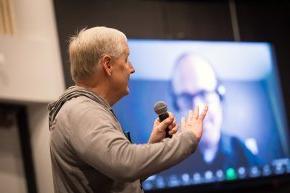
A: One of the joys is related to some of the colleagues that are in the room right now and the conversations we’ve had about how being on campus and in Hickory will look in practical terms.
The second thing that is really buoying me these days is the sense of story because our realities are created by the stories that we tell. I've seen this across global ministry. I've seen this in every place. After all, as Christians, we are people of a story, proclamation of good news that we retell in story form every time we gather, in order to build the communities of life and grace. We’re all telling the story about who LTSS is and what it is becoming. I think part of this narrative of pilgrimage is a question of what God is calling us toward. It allows us to focus on that mission and to reframe it so that we see this move in terms of hope, possibility, and becoming, which is the Spirit’s work in us.
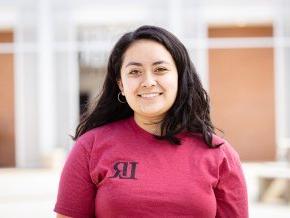
Melanie Mora '25 has been planning to study abroad in South Korea for more than a year. Now the U.S. Department of State is supporting her studies through the Benjamin A. Gilman International Scholarship.
View More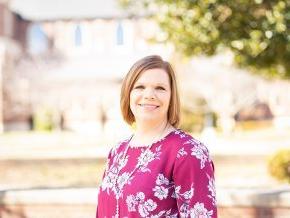
Tabitha Toney '99, Ph.D., will lead the program with an eye toward excellence and a heart for patient care.
View More